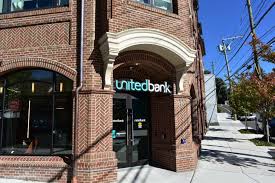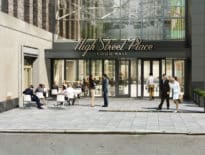The parent company of Hartford-based United Bank reported another profitable quarter to start the year, but major losses could be coming.
The bank, which has a large presence in Western Massachusetts, disclosed in recent regulatory filings that it has invested in a series of alternative energy tax funds tied to a company that has not only filed for bankruptcy, but is also facing a probe from the U.S. Department of Justice for allegedly running a Ponzi scheme.
The company invested as a limited liability member in Solar Eclipse Investment Fund X LLC, Solar Eclipse Investment Fund XV LLC and Solar Eclipse Investment Fund XXIII LLC. These funds, which generate investment tax credits for United, are the borrowers of and lessees to two companies called D.C. Solar Solutions and D.C. Solar Distribution, which are the subject of the investigation.
If the allegations against these companies are accurate, United could face a total loss of $41.7 million.
“At this time, United believes the loss is probable, but the company is currently unable to measure the extent of the loss,” United CFO Eric Newell said on a recent earnings call. “This total exposure is composed of the carrying value of the partnerships on the company’s balance sheet, the tax credits associated with placing the inventory into service, as well as the tax loss flow-through benefits and finally, the effect of revaluing deferred tax assets to pretax reform levels on the current statutory tax rate.”
DC Solar Solutions and DC Solar Distribution are based in Benicia, California and are part of a group of companies engulfed in the lawsuit and owned by a Martinez, California couple, Jeff Carpoff and Paulette Carpoff.
According to its website, DC Solar Solutions designs, manufactures and leases renewable energy products to serve the off-grid needs of a broad and diverse marketplace – while providing investors with access to the renewable energy asset class.
The FBI raided the Carpoffs’ home and business in December and accused the couple of running an $800 million Ponzi scheme. The FBI has been working with the Internal Revenue Service, according to the Martinez News-Gazette.
The two DC solar companies and several of their affiliates filed for Chapter 11 bankruptcy in late January and early February of this year, Newell said. Since that time, the bankruptcy has been converted to Chapter 7. None of the potential losses have hit the bank’s balance sheet yet; Newell was unable to say when that might happen or when the full scale of the losses might become known.
The actual loss amount would depend on a variety of factors, including how much inventory was actually in United’s funds; when United could take possession of inventory; and clarity on the true evaluation of the inventory, which drives the tax credits and the carrying value, Newell said.
On the first quarter as a whole, the parent company of United Bank reported net income of $12.7 million, or $0.25 per diluted share, compared to net income of $15.8 million, or $0.31 per diluted share, for the first quarter of 2018.
Total assets reached roughly $7.4 billion, up more than $270 million year-over-year. The margin dropped nine basis points from last year, settling at 2.81 percent. The provision for loan losses in the first quarter was $2.04 million, up slightly from the first quarter of last year, and nonperforming assets as a percentage of total assets was 0.42 percent, down from last year.
As of this morning, United Bank’s parent company stock was trading at $13.44.




 |
| 


